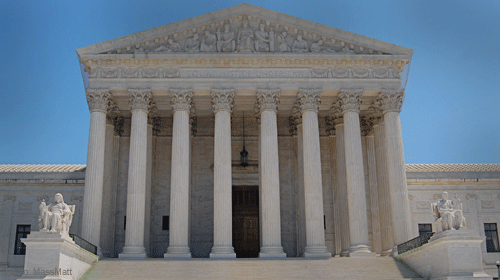
In a high-profile few weeks of wins and losses at the Supreme Court, there are two end-of-term opinions that will make it more difficult for workers to sue employers who discriminate against them, which may have gotten a bit lost in the shuffle. One case involves race discrimination, and the other involves actions taken in retaliation for complaining about national origin and religious discrimination. Both interpret one of the federal laws that govern employment discrimination: . By setting forth yet another cramped interpretation of this statute, the Supreme Court made it more difficult once again, as it did in prior terms with the Ledbetter and Wal-Mart decisions, for victims of workplace discrimination to obtain justice.
In , an African-American woman named Maetta Vance sued her employer, a catering company, claiming that another employee harassed and intimidated her because of her race. Under Title VII, an employer can be held responsible for the discriminatory actions of its employees; it is easier for a victim to hold the employer accountable if the harasser is a "supervisor" than if the harassment comes from someone who is just a co-worker.
Prior to these decisions, many courts, as well as guidance from the , had recognized that a "supervisor" can be someone with the authority to direct daily work activities of other employees. In Vance, the Supreme Court held, 5 to 4, that someone is not a "supervisor" unless she can take actions like hiring, firing, demoting, promoting, or transferring the victim of harassment. With this type of liability defined so narrowly – and so inconsistently with our modern workforce -- Vance will allow employers to artificially insulate themselves from liability for the discriminatory actions of employees, who do, in fact, function as de facto daily supervisors. In her , Justice Ginsburg, as she has done in other employment cases, rebuked the majority for being out of touch with the realities of many workplaces, in which an employee who directs work activities functions as a supervisor with tremendous control over workers' daily lives, even if that person does not have final authority to hire or fire.
In , a doctor claimed that a university medical center retaliated against him for complaining of discrimination based on his national origin and religion by rescinding a job offer to work at the same center in another capacity. Nassar won in the lower courts, even though the jury found that his discrimination complaint was only one of the reasons his employer rescinded the job offer. The Supreme Court held, again 5 to 4, that a plaintiff claiming retaliation has to prove that the discriminatory action – here, the rescinding of the job offer – would not have happened but for the fact that he had filed the original complaint of discrimination. The decision establishes a tougher standard for retaliation claims in many instances than for the underlying discrimination claims themselves.
Unfortunately, we have seen this before from this Court – a narrow interpretation of our employment discrimination laws that operate to make it near impossible for employees to vindicate their rights and a perspective that is out of touch with how discrimination manifests in the workplace. In 2006, the ŔĎ°ÄĂĹżŞ˝±˝áąű supported Lilly Ledbetter in her case to challenge wage discrimination. Although Lilly won on the merits in the district court, the Supreme Court instead endorsed a novel interpretation of Title VII, counter to decades of precedent, requiring an employee to bring a charge of discrimination when the employer begins the discrimination, whether the employee knows about it or not. In Lilly's case, she only learned of the discrimination 19 years after it began when someone slipped her an anonymous note. In her , Justice Ginsburg, invited Congress to act to correct the decision. So, when Lilly in the Supreme Court, the ŔĎ°ÄĂĹżŞ˝±˝áąű joined other advocates and urged Congress to change the law to protect employees like Lilly. Congress passed the in 2009.
Similarly, in Wal-Mart v. Dukes, a class of former and current female employees of Wal-Mart – supported by the ŔĎ°ÄĂĹżŞ˝±˝áąű and other civil rights groups -- challenged widespread discrimination in compensation and promotions, which they claimed were the result of an overly subjective decision-making process company-wide. In rejecting the class, the Court, again, ignored decades of settled Title VII and class action law and made it more difficult for women to band together to vindicate their rights. After this decision, in 2012, the ŔĎ°ÄĂĹżŞ˝±˝áąű worked with Congress to draft a legislative fix for the decision – the – which would restore employees' ability to challenge these types of practices as a group. We continue to fight for this legislation.
In Vance, Justice Ginsburg again advises us. She : "The ball is once again in Congress' court to correct the error into which this Court has fallen, and to restore the robust protections against workplace harassment the Court weakens today." We will take that charge and guidance seriously, as we turn to Congress to protect our employment rights where the Court has, yet again, failed us.
Learn more about employment discrimination and other civil liberty issues: Sign up for breaking news alerts, , and .

